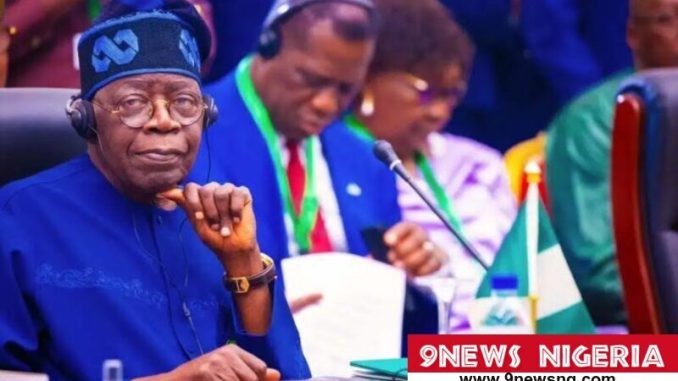
The best antidote for obliterating coups from Africa’s political landscape is good governance and nothing else. Presidential decrees or “Executive orders” cannot stop coups and revolutions. Only good governance and total commitment to the welfare of the citizens can stop coups.
The truth is that the overrated prevailing system, with its built-in fraudulent democracy of government of rogues by rogues and for rogues and their families, can no longer be tolerated or indeed, sustainable. It is the antithesis of true democracy. For democracy, the sine qua non is accountability by all – top to bottom.
This is the best time to re-evaluate Abraham Lincoln’s definition of “government of the people, for the people, and by the people.” Rather than patchwork or cosmetic changes, most nations on the African continent need massive reforms in all spheres of governance.
Good governance is the panacea to coups and rebellions like the French Revolution, Bolshevik Revolution, and the Arab Spring. It is only when citizens participate in democracy and do not allow power mongers to dictate and manipulate the electoral process that the doors can be shut against jackboot regimes.
Amartya Sen, an Indian philosopher, economist, and Nobel Prize winner, once said that democracy has complex demands which certainly include voting and respect for election results, but also require the protection of liberties and freedoms, and respect for legal entitlements.
The fundamental philosophy that keeps democracy alive is that democracy is about equity and justice. Sadly, the development playing out in Niger Republic is an unfortunate reminder of a similar development in Mali three years ago, where the country’s military also sent the democratically-elected president, Ibrahim Boubacar Keïta packing, despite the condemnation of their action by ECOWAS and the international community.
While coups are rarely a solution to bad governance, the trend echoes the need for reassessment of the neo-liberal democratic project in Africa – the situation is avoidable if the penchant of African political leaders for manipulating the electoral process, or the constitution, to extend their tenure in office is totally discouraged.
Consequently, African leaders need to wear their thinking caps and do their best to conduct elections in an atmosphere of trust, freedom, and transparency. For the African continent, the fear of ECOWAS countries is understandable – they do not want this to be incentivized in their countries. The more reason why the so-called democratic governments in Africa must put their houses in order.
Regrettably, Many African leaders manage to cling to power for decades, either by force, breaking laws, or bending constitutions. It is an established norm that has been practised throughout the modern history of the continent. Find below a list of some of the African despots:
- Theodoro Obiang Mbasogo, a former military officer who has served as the second president of Equatorial Guinea came to power in an August 3 1979 coup. He is Africa’s longest-serving leader with nearly five decades at the helm.
- Paul Biya, my birthday mate is the oldest president in Africa, born on 13 February 1933 – the same date and month as yours truly. He has served as a Cameroonian president since 6 November 1982. Paul Biya is second Africa’s longest-serving president and the longest non-royal-serving leader in the world. He is Africa’s second longest-serving leader after Equatorial Guinea’s Teodoro Obiang Nguema Mbasogo. But they are far from alone among leaders on the continent who have clocked up decades in office.
- Yoweri Kaguta Museveni is another longest-serving president in East Africa whose government is considered autocratic. He has been President of Uganda since 1986.
- Jose Eduardo dos Santos also makes it to our list of the longest-serving African presidents, having been in power for 38 years. He was the president of Angola from 1979 to 2017. Dos Santos was accused of corruption and human rights abuses during his office. Under his rule, Angola became one of the most unequal countries in the world, with much of the population living in poverty. Dos Santos has been criticized for using his position to enrich himself and his family. It remains to be seen how his departure will impact the country of Angola
- Idriss Déby Itno, a Chadian former military officer who was the president of Chad from 1990 until his death in 2021 during the Northern Chad offensive. He was in power for more than three decades albeit not uninterruptedly.
- Paul Kagame, a Rwandan politician and former military officer who is the fourth and current president of Rwanda, has been in power since 2000.
All these sit-tight African presidents are part of the reasons why we have been grooving in the dark as a continent. Needless to say, the way things are happening in the sub-region, particularly the 26 July military takeover in the Niger Republic, is a wake-up call and a good reason for an honest appraisal of our leadership styles.
Let me be very clear, ‘change is inevitable’ unless we change our ways otherwise something drastic will certainly change us. It was stated in one of my articles “The Road To Mali” published by Sahara reporters on October 19, 2020. My position then is still valid: “The hapless citizens have nepotism to end bad governance, overhaul and demand for accountability. The Nigerian youths are taking their future away from the control of the old crop of leaders who gave them nothing but an abominable country.”
With a profound sense of responsibility, I like to conclude this contribution that focuses on ‘Mediation And Crisis Management’ by advocating for THE SETTING UP OF A BODY OF ‘African elder statesmen and women’ particularly, FORMER PRESIDENTS. The body would intervene in crises, as an impartial independent advocate, facilitator, or mediator.
This group could be coordinated by a well-structured body like the revitalized NEPAD. Ultimately, the continent of Africa will begin to experience greater stability and prosperity, leading to a continent with a vibrant citizenry.
Richard Odusanya is a Mind Restructuring Enthusiast
